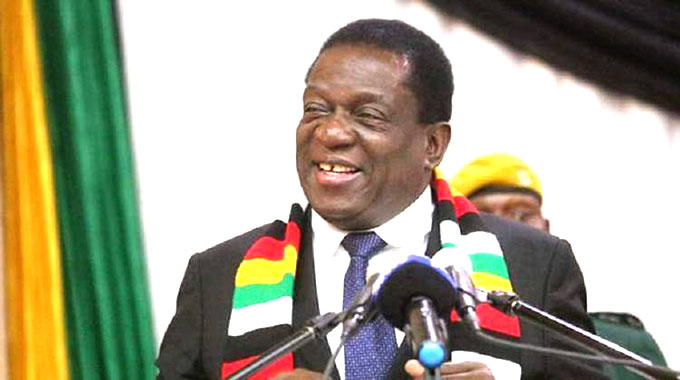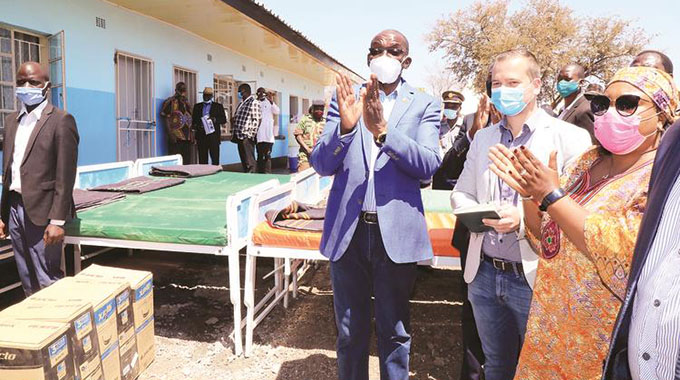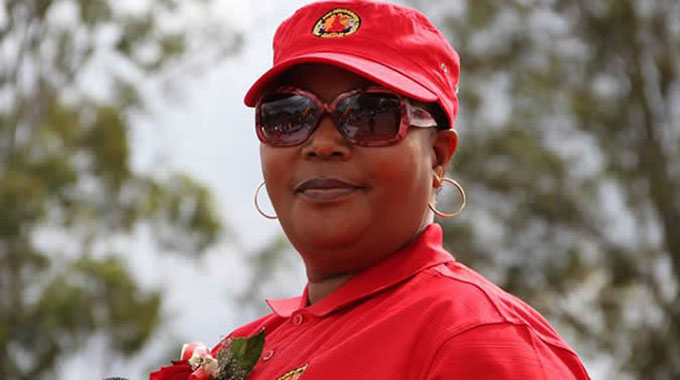Celebrating the birth of democracy!

Elliot Ziwira
Senior Writer
President Mnangagwa yesterday turned 78. Coincidentally, September 15, his birthday, is set aside as the International Day of Democracy, which affords global citizens an opportunity to appraise the state of democracy in their abodes.
With the coming of the Second Republic, under the tutelage of President Mnangagwa, the word democracy was given a new meaning; a shared meaning of hope, where change is measured through what one offers as contrasted to where one is coming from politically.
It is a double celebration for Zimbabweans, therefore, through a prophecy that was fulfilled when he was inaugurated on November 24, 2017.
Since then, the President has always preached peace, unity, harmony and non-violent engagement.
Humbly submitting himself to his fellow countrymen, President Mnangagwa opened up democratic, economic and political spaces, which cannot be grudged.
That politics could be discussed openly, like games of soccer, pool or poker, without inhibitions or fear, was never thought possible in the past.
The harmonised elections of July 30, 2018 reflect the free will of Zimbabweans, in a new democracy for a new Zimbabwe; a Zimbabwe that all countrymen deserve, where leaders humbly submit themselves to the people, as servant leadership is wont to be.
It is regrettable that some among the citizenry could not fathom, nay accept the fact that a prophet among them had been raised and endorsed through combined will.
However, as democracy entails, it is every man’s right to refuse to lose or be declared a loser, even if the prophecy is clearly written on the wall.
Thus, MDC Alliance’s Nelson Chamisa’s Constitutional Court challenge was as constitutionally apt as President Mnangagwa’s win is emphatically reflective of the ripening of time to a prophecy that has long been foretold.
President Mnangagwa’s inauguration on August 26, 2018 at the National Sports Stadium, therefore, ignited hope for a nation that had been on the fringes for long.
Hope may wear so many faces, but the humility in his voice as he delivered his speech gave meaning to a shared hope, as illuminated in the words:
“I am your listening President, a servant leader. In this vein, those who will occupy public office at any level, under my Government will be required to exercise servant leadership in the execution of their duties, and to be humble and responsive in their interactions and dealings with the citizenry.”
Such are the traits of a democratic leader!
But what really does democracy mean? Are the ideals of democracy and governance that seem to be borrowed robes from the West adequately speak to and impact on African realities?
Some of the key elements of a democratic government include a political system that makes it possible to elect and replace the government through free and fair elections, the active participation of the people as citizens, and a rule of law in which the laws and procedures apply equally to all citizens (Diamond, 2009).
Montesquieu (1689, 1755) puts democracy in context thus: “As in a country of liberty, every man who is supposed a free agent ought to be own governor; the legislative power should reside in the whole body of the people.
“But since this is impossible in large states, and in small ones is subject to many inconveniences, it is fit the people should transact by their representatives what they cannot transact by themselves (cited in Held, 2006: 66).
Both Diamond (2009) and Montesquieu (1689, 1755) concur that the people’s will, as citizens or through their representatives, are major cogs in a democratic society.
In Marx’s view, social classes also play a major role in what constitutes democracy due to materialism.
Since the people are a crucial component in a democracy, for it is from them that the Executive and Legislature derive power, it is apt, therefore, that the President implored his lieutenants “to be humble and responsive in their interactions and dealings with the citizenry.”
The Executive and the Legislature need the people as much as the masses require representatives for their transactions.
However, the post-colonial nation state in Africa finds itself in a conundrum when it comes to shaping acceptable ideologies and forms of democracy that endear the leader to the people.
With everything premised on Western concepts, it is high time that Africans, pertinently Zimbabweans, discern what best works for them, and accept that prophets are always raised from among them.
“For Moses said, ‘The Lord your God will raise up for you a prophet like me from among your own people; you must listen to everything he tells you. Anyone who does not listen to him will be completely cut off from their people,” so intimates Peter in Acts 3v22-23.
And the philosopher Joseph de Maistre once said, “Every country has the government it deserves”, and, “In a democracy people get the leaders they deserve.”
What really does a nation deserve? And is it possible for a nation to know that, indeed, one of their own has been raised to lead them to that Promised Land?
It takes more than mere understanding of letters for a people to realise that the time has come for the citizenry to embrace the glad tidings issuing from above; the glad tidings of the golden future time.
Oftentimes, however, the temptation is to seek prophets from outside our own boundaries, for a prophet is said not to be recognised in his own town, as those who know him will always claim that the son of so and so cannot be the one.
“He is just one of us, what really can he bring us when he has grown up among us?” they would say.
But when the time is ripe, surely, one among a people can have the light shown on him to lead them to the Promised Land.
What is only needed is the discernment that comes with understanding the meaning of what constitutes a nation, and what it means to have a prophet among them.
As Zimbabweans, we share a lot, and have always done so as a nation: enduring the historical inequalities that permeated the Motherland.
We can only do more as a united people, because independence is more than political triumph, for the need forever remains; to be masters of our own destiny through control of the means of production, chief among them the land.
Through the economic freedom that comes with ownership of the land, we can change outcomes for all of us. And President Mnangagwa remains steadfast in that light.
He has always been for the people, and for that he was tormented, persecuted and pursued.
He was literally marked. Why? Because the beacon shone on him. It was not difficult for his people to realise that he was the one.
A chick that will grow into a cock can be spotted the day it hatches, the adage goes.
Universally, people’s perceptions of democracy may differ, but what persists is that: “In a democracy people get the leaders they deserve” (Joseph de Maistre).
Indeed, a prophecy whose time has come cannot be wished away, Zimbabwe has got a leader it deserves at the moment, who is advancing their wishes in a democratic manner.
Through President Mnangagwa, whose birthday coincides with the International Day of Democracy, democracy has been born in the Motherland.










Comments